Vietnam country report
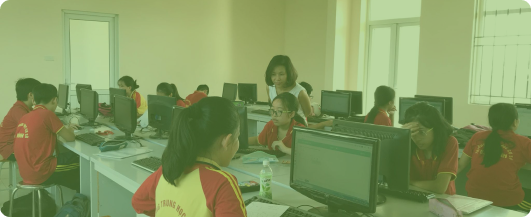
This report outlines findings from the impact of a High Touch High Tech approach to grade 7 math and considers implications for the role of the teacher and other members of the workforce when leveraging technology. Read about the High Touch High Tech prototype in Vietnam.
Sierra Leone country report
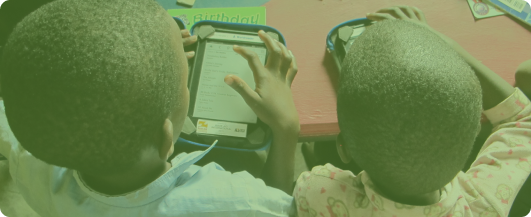
This report describes outcomes from a project supporting the Teaching Service Commission in Sierra Leone to research, analyze, and propose solutions for critical education workforce issues, including improving the supply and demand of teachers in the most disadvantaged areas. Read about innovative education workforce analysis for more equitable education in Sierra Leone.
Ghana country report
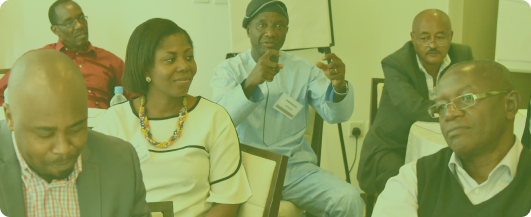
This report focuses on findings from a project supporting the Ghana Education Service (GES) to redesign the education workforce at all levels of the education system. Using an organization design approach, the project integrated structures, processes, and human capacity to address workforce issues and enhance the GES institutional reform. Read about redesigning the education workforce in Ghana.
Sierra Leone flipbook
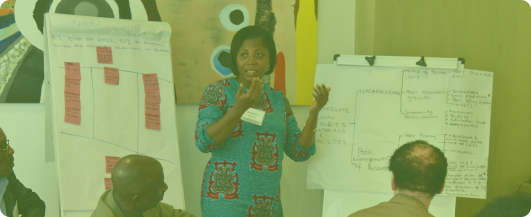
Read about EWI’s analysis for the Teaching Service Commission to help improve the supply of qualified teachers in hard-to-reach areas
Sierra Leone research papers
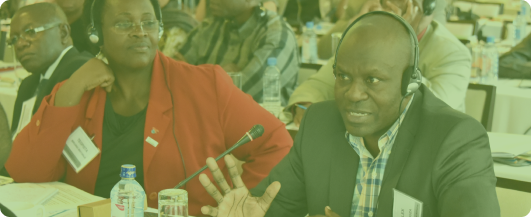
Innovative analysis for the education workforce: Sierra Leone research and policy papers.
The Education Workforce Initiative (EWI), funded by UK Aid, partnered with Fab Inc. and Sierra Leone’s Teaching Service Commission (TSC) to support strengthening the education workforce. The research and analysis applied a systemic lens across the workforce lifecycle, considering how to improve the supply and demand of teachers across Sierra Leone, but especially in the most disadvantaged areas.
The project worked adaptively and collaboratively with stakeholders across government, teacher unions, and development partners to produce a series of research and policy papers aimed at supporting both government policymaking and development partner activities. These five evidence papers covered key aspects of the education workforce: management; spatial analysis; supply and needs; recruitment and matching; and costed options.
An Education Workforce to Support the Learning of Girls and Students from Marginalised Communities: Evidence-based Action Areas
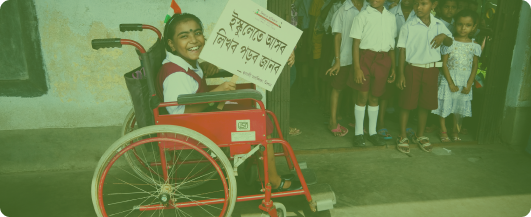
Read the evidence overview for an education workforce to support the learning of girls and marginalized students, used to inform a Southeast Asia Policy Dialogue
Lebanon Policy Dialogue report
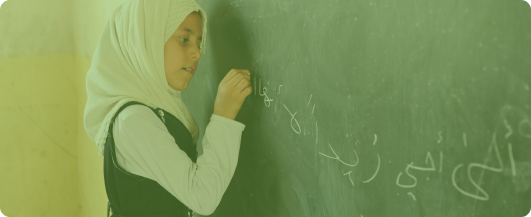
This report shares key insights and evidence, including breakthrough approaches, to tackling common challenges in teacher allocation. It includes case studies of new technologies and innovation shared by international experts at a policy dialogue event in Lebanon. Read about innovations in teacher deployment and distribution.
Bridging the Evidence to Policy Gap: A Learning Partnership Approach to Research
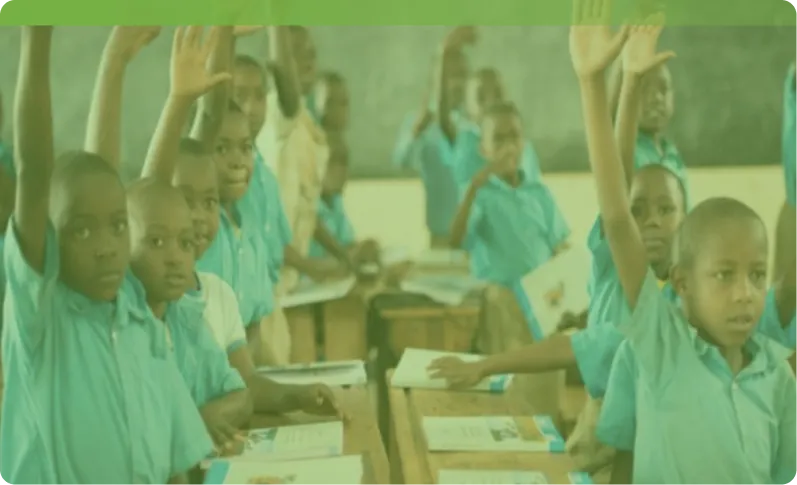
At the height of the pandemic, WISE, the Education Commission, and Education Development Trust came together with the aim of generating new evidence on effective school and system leadership during COVID-19. This learning partnership approach helped close the gap between research and evidence, and policy and action. Learn more about the learning partnership approach to research.
Rwanda learning partnership report

At the height of the pandemic, WISE, the Education Commission, and Education Development Trust came together with the aim of generating new evidence on effective school and system leadership during COVID-19. This learning partnership approach helped close the gap between research and evidence, and policy and action. Learn more about the learning partnership approach to research.
School Leaders’ Preferences on School Location In Sierra Leone An individual and school level study
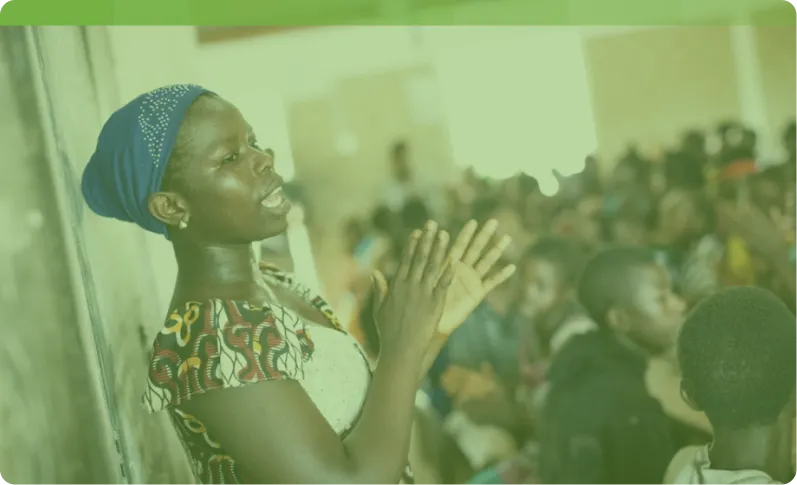
This paper presents findings from a survey of school leaders’ perceptions regarding what shapes school location preferences in Sierra Leone and the necessary incentives to address the imbalanced distribution of qualified teachers. This paper accompanies a qualitative inquiry on the same topic: What Matters Most for Teacher Deployment? A case study on teacher school choice preferences in Sierra Leone (McBurnie et al., 2022). Together with the qualitative study, our findings aim to address a gap in empirical evidence on equitable distribution in Sierra Leone and contribute to a growing literature on teachers’ preferences in low- and middle-income countries.
What Matters Most for Teacher Deployment? A case study of teacher preferences in Sierra Leone

The report explores what factors shape where teachers want to work in Sierra Leone. In doing so, it aims to better understand why the inequitable distribution of teachers persists in Sierra Leone and to generate evidence to inform future teacher deployment reforms.
Foundational Learning & the Education Workforce: Global Evidence & Implications for Pakistan

Read the brief on foundational learning and the education workforce in Pakistan produced in partnership with Oxford’s Blavatnik School of Government with support from UK Aid
Leadership for Foundational Learning in Africa: Evidence and Considerations for the Future
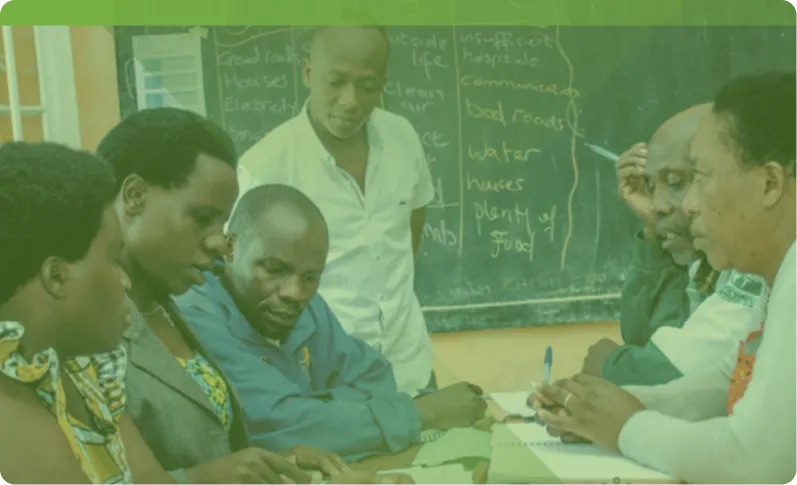
Read this brief discussing the evidence-based reforms to improve school leadership and learning outcomes in Africa
Inclusive, engaging, and adaptive pedagogies rubric
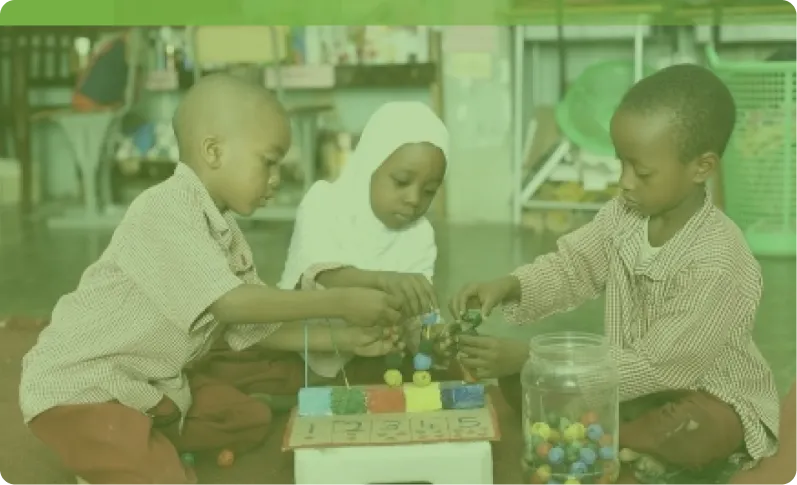
A practical diagnostic tool for national stakeholders to assess existing pedagogies in their primary education systems and identify gaps and priorities to strengthen IEA pedagogies moving forward
Innovative Pedagogies Project: Policy brief
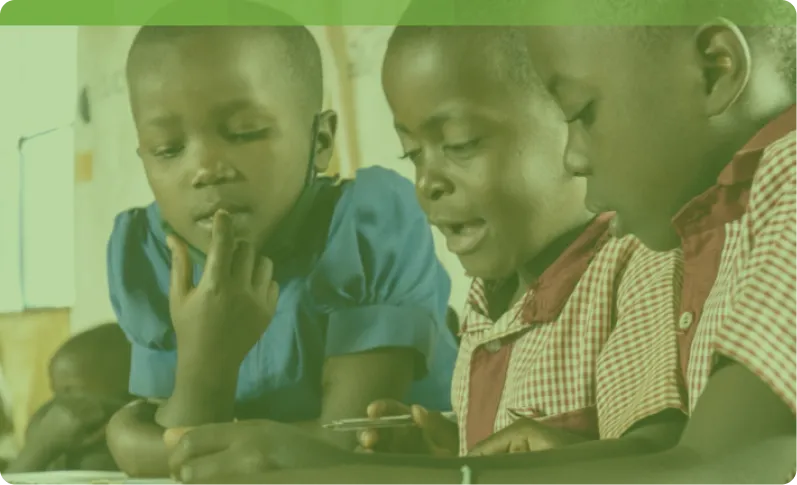
Read the brief resulting from work in Ghana, Kenya, and Rwanda to create greater action towards adopting inclusive, engaging, adaptive, and playful pedagogies
Teachers and Beyond: A Mapping of Prominent Education Workforce Tools and Frameworks
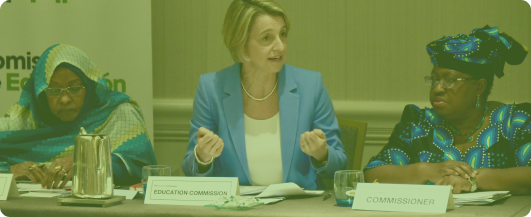
Joint publication with the Global Partnership for Education.
Teachers and Beyond: A Mapping of Prominent Education Workforce Tools and Frameworks
Change agents Emerging evidence on instructional leadership at the middle tier
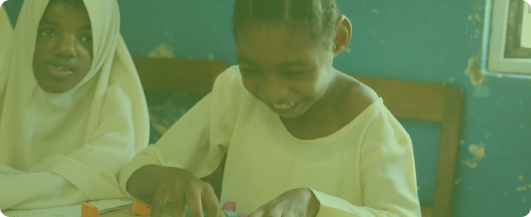
A joint publication with EdDevTrust and IIEP-UNESCO,
that outlines the change agents at the middle-tier of education systems
Transforming the Education Workforce and COVID-19: Leadership
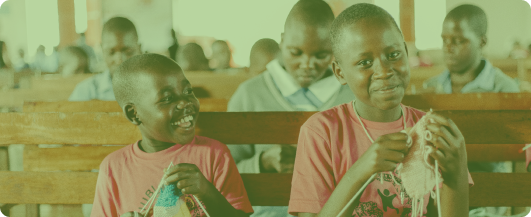
The COVID-19 crisis forced countries to strategize how to accelerate the transformation of education systems to be more resilient and flexible. Strong leaders are needed to drive this transformation. Read the second in a series of briefs on Transforming the Education Workforce and COVID-19.
Transforming the Education Workforce and COVID-19: Learning Teams
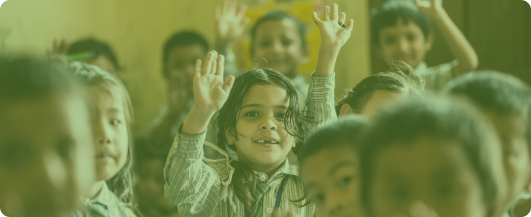
To build more robust capacity post-COVID, education systems should look at their education workforce holistically and leverage the existing expertise and experience of their leaders, support staff, and communities in a learning team approach that can facilitate quality education for all children. Read the first in a series of notes on Transforming the Education Workforce and COVID-19.
Transforming the Education Workforce: Learning Teams for a Learning Generation

This major report offers new visions for strengthening, diversifying, and reimagining an education workforce that can deliver inclusive, quality education for all.
Education Workforce Initiative Overview

The Education Workforce Initiative (EWI) is part of the Learning Generation Initiative (LGI), whose
mission is to empower the people within and connected to education systems to enable all children to be learning within a generation. This 2-pager outlines the vision of the EWI transformation: for all countries to have a strong education workforce that is designed and supported to help those within collaborate with each other and with those outside the education system to achieve learning for all.
Learning Teams for Foundational Learning
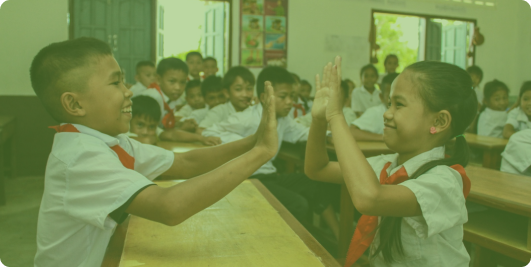
Learning team approaches aim for groups of education professionals that collaborate at every level—classroom, school, district, and central—to ensure learning for all. This note aims to set the agenda for further research on learning team approaches by defining what they are, briefly synthesizing the evidence for them, and providing a few examples of how they have been harnessed to improve foundational learning.
Learning Teams to Support Children’s Learning and Wellbeing

This report explores how learning teams can improve education systems by fostering collaboration among educators, communities, and other sectors. Through four case studies from Nepal and Kenya, the report examines the origins, practices, and impact of these teams. The research offers insights into how learning teams can enhance student outcomes, teacher well-being, and governance, while informing future education reform efforts.
Transformative Teaching & Learning: High Touch High Tech for Engaged and Adaptive Classrooms
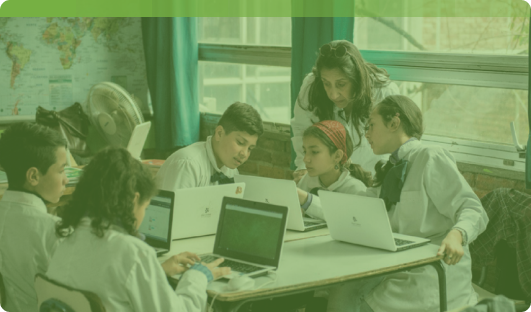
Transformative Teaching & Learning: High Touch High Tech for Engaged and Adaptive Classrooms” project (2021-2024), led by CEIBAL and Education Commission Asia, aimed to enhance teaching and learning in 5th-grade math and 7th-grade computational thinking in Uruguay. Through HTHT lesson plans, teacher training, and ongoing support, the project reached over 10,000 students in 249 schools, with independent evaluations by global education experts.
Leaders in Teaching Research Note: Evidence on supporting effective secondary school leadership
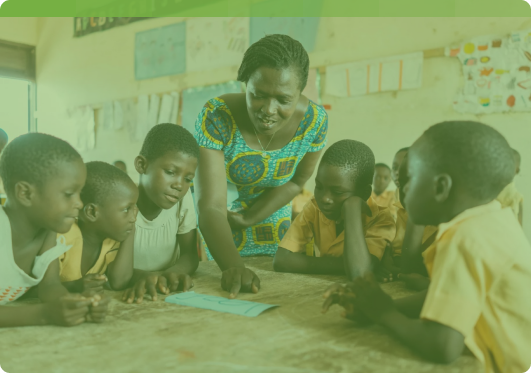
This research note explores evidence on effective secondary school leadership, focusing on school improvement plans (SIPs), instructional leadership, teacher motivation, and promoting female leadership. It highlights the need for sustained professional development, targeted support, and data-driven strategies to equip school leaders in improving teaching, learning, and overall education outcomes.
Leaders in Teaching Research Note: School leader use of data for school improvement
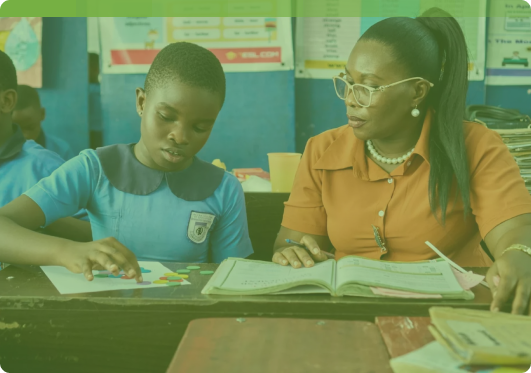
This research note summarizes evidence on school leaders’ use of data for school improvement, focusing on enablers, challenges, and best practices. Drawing on global examples, it highlights the need for targeted training, technical support, peer networks, and middle-tier engagement to cultivate a data-driven culture that improves school-level outcomes.
Leaders in Teaching Research Note: Evidence on coaching and mentoring for education leadership
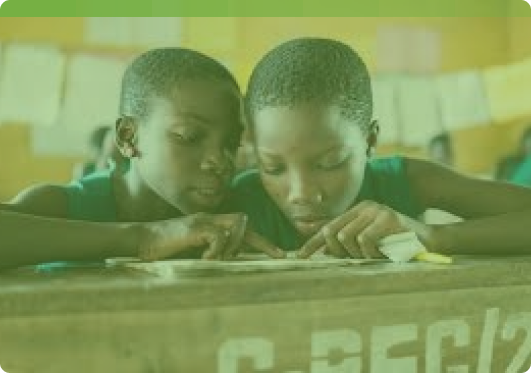
This report summarizes evidence on coaching and mentoring for school and middle-tier leaders, with a focus on Africa and low-resource contexts. Highlighting proven strategies, country examples, and key takeaways, it underscores the positive impact of leadership development on school outcomes, collaboration, and leadership capacity, while offering actionable recommendations.
Dynamics of middle tier support in the South African education system: contextual and institutional influences

This report explores the critical role of middle-tier education professionals in bridging policy and practice. Drawing on research from South Africa, it examines their impact on education outcomes, the challenges they face, and opportunities to strengthen their role in supporting teachers, school leaders, and equitable learning for all students.
High Touch High Tech for All
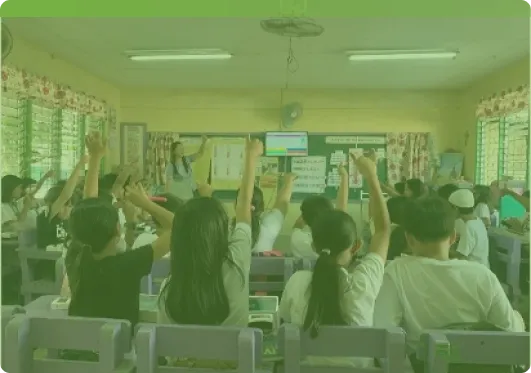
High Touch High Tech for All (HTHT) is an approach that brings together the unique strengths of teachers (High Touch) and AI-enabled adaptive learning technology (High Tech) to personalize education, particularly for the most disadvantaged learners.
Governments and partners provide locally available technology that delivers adaptive content and assessment aligned with national curricula, allowing students to learn at their own pace. Teachers then use real-time data to tailor instruction and foster critical thinking, collaboration, and social-emotional growth. When combined with teacher training and support, HTHT has the potential to accelerate learning at scale.
Leveraging the potential of the middle tier to improve education outcomes
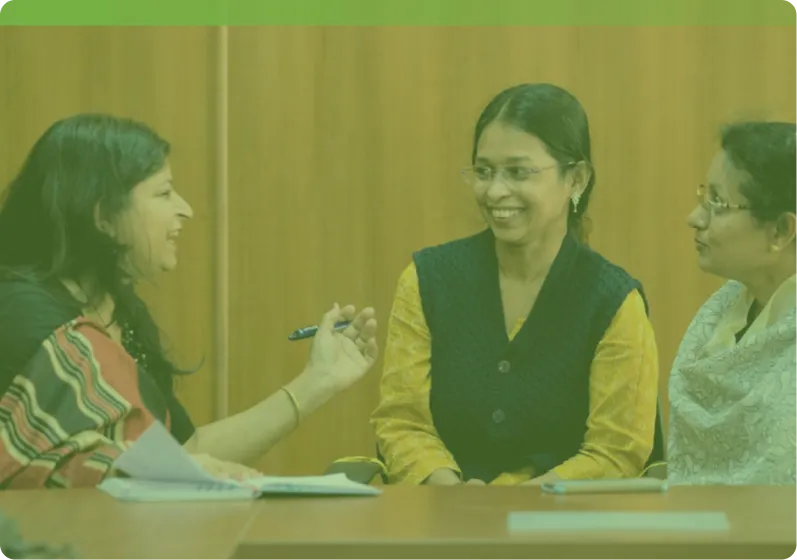
The middle tier connects schools and central systems, translating policy into practice and supporting education reform. This paper outlines key functions, capacity gaps, and a new assessment framework to help governments strengthen the middle tier—unlocking its potential to improve teaching, equity, and learning outcomes across education systems.
A missing link for inclusive education
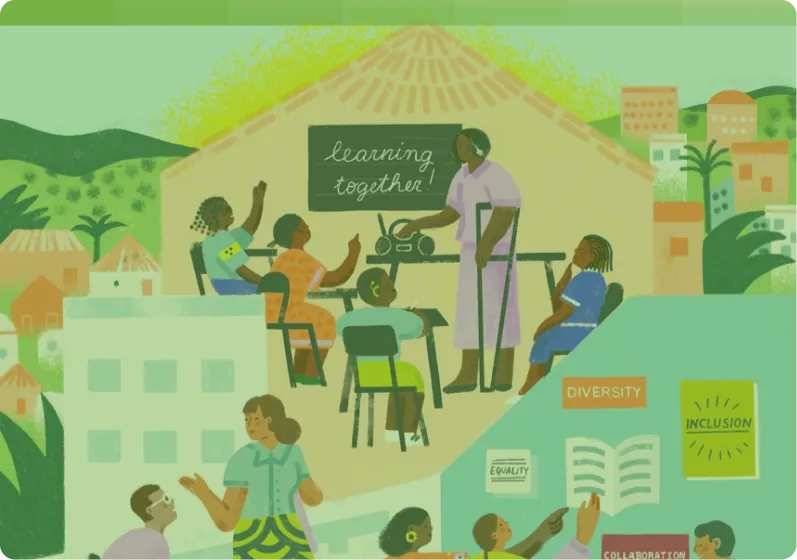
This paper explores the experiences of teachers with disabilities working in mainstream classrooms across low- and middle-income countries. It highlights the need for inclusive policies, accessible infrastructure, and better data, drawing on teachers’ voices to offer practical recommendations that promote equity and diversity in the education workforce.
